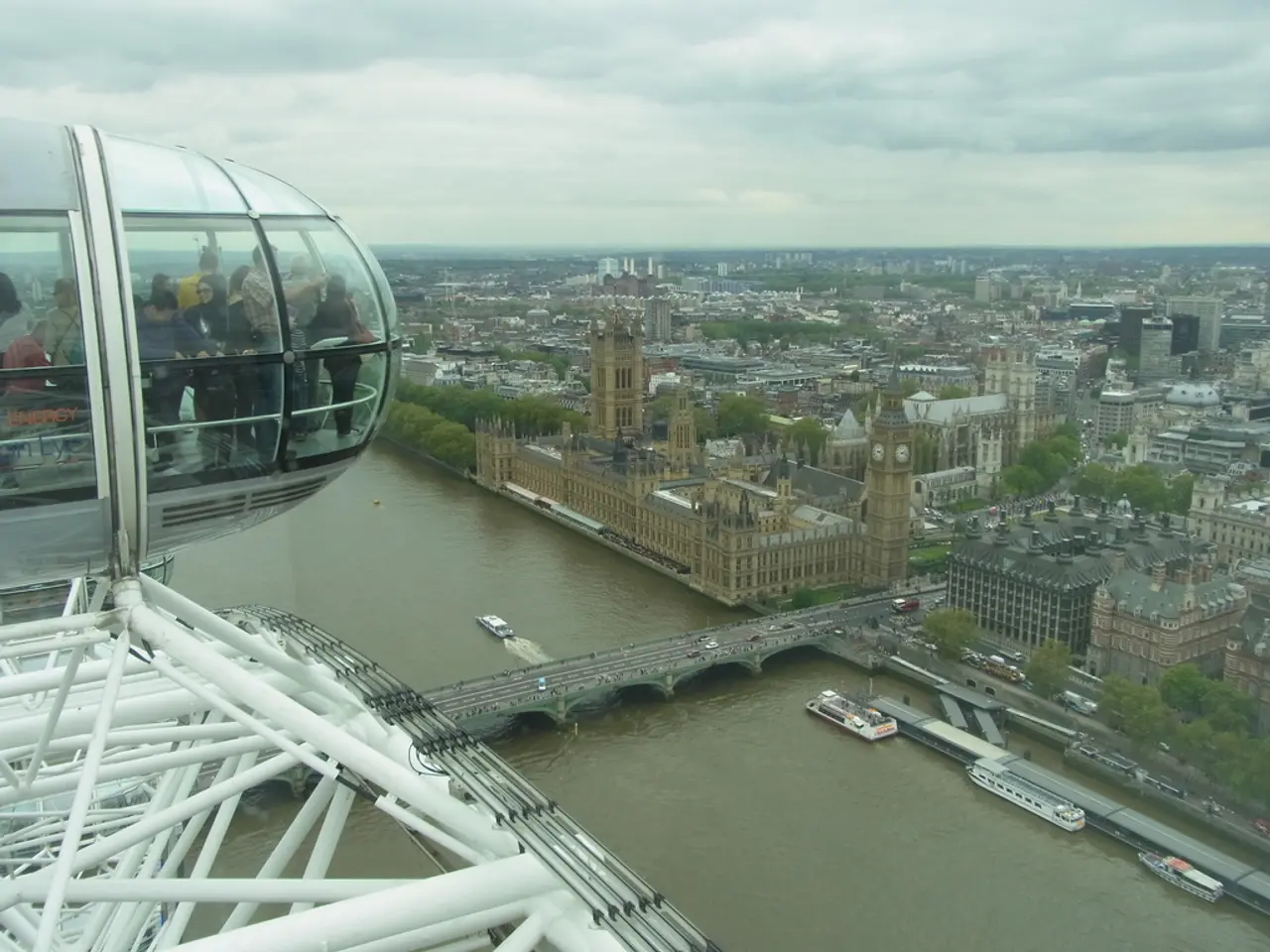Has the HS2 project resurfaced on the UK government's to-do list?
HS2 Project Costs Soar, Prompting Calls for Change
The HS2 project, designed to link London, Manchester, and Leeds, has seen its costs skyrocket from an initial £37.5 billion in 2009 to over £70 billion by 2021. This significant increase has sparked criticism and calls for reform, as the project faces mounting costs, management issues, and delays.
The primary reasons for the cost overruns are numerous. Expensive land acquisition in densely populated areas, complex engineering challenges, environmental protests, poor initial cost estimation, and the impact of external events such as the COVID-19 pandemic have all contributed to the project's ballooning costs.
Originally estimated at around £56 billion, the cost has now risen to approximately £98-106 billion, with some estimates reaching as high as £170 billion. These overruns have led to reductions in project scope, such as the dropping of certain links to limit costs.
In an effort to address these issues, a comprehensive project reset has been proposed, focusing on realistic budgeting, stronger contractor management, enhanced organizational capability, and improved government oversight. Key components of this approach include establishing a new cost and schedule baseline, resetting commercial relationships with major contractors, improving capabilities and leadership within HS2 Ltd, enhancing government oversight, and seeking government support and constructive challenge.
The goal of these interventions is to bring the HS2 project to completion more quickly and cost-effectively, acknowledging that previous budgets and timelines were unrealistic under the current delivery strategy.
However, the HS2 project has faced other challenges, including whistleblowers being ignored or dismissed, a high turnover of leadership, and the use of cost-plus contracts that place 99% of the financial risk with the government, incentivizing budget overruns.
The project's completion date has also been pushed back, with the HS2 line now unlikely to open until at least 2033 instead of the mid-2020s. Despite this, the Department for Transport is considering extending the HS2 line to London's Euston, as originally planned.
The Institution of Civil Engineers has criticized the management of the HS2 project, citing the "absence of a guiding mind" and the high number of changes in leadership. Sir Jon Thompson, who was appointed chair of HS2 Ltd in early 2023, has also pointed out the one-sided nature of these contracts as extraordinary.
Despite these challenges, a proposal for "HS2-light" involving private-sector investment has been put forward, but it would still cost billions. The extension of the HS2 line to connect the West Midlands with Manchester is not being resurrected, according to the Department for Transport.
In summary, the HS2 project's cost overruns are the result of a combination of factors, including expensive land acquisition, complex engineering, environmental issues, poor initial cost estimation, and the use of cost-plus contracts. The proposed approach is a comprehensive project reset focusing on realistic budgeting, stronger contractor management, enhanced organizational capability, and improved government oversight to control costs and expedite delivery.
Finance and politics are intertwined as the skyrocketing costs of the HS2 project have prompted calls for reform and renewed scrutiny from industry watchdogs. The general-news media has been abuzz with discussions on the project's mounting costs, management issues, and delays, affecting transportation and the nation's economic growth.




